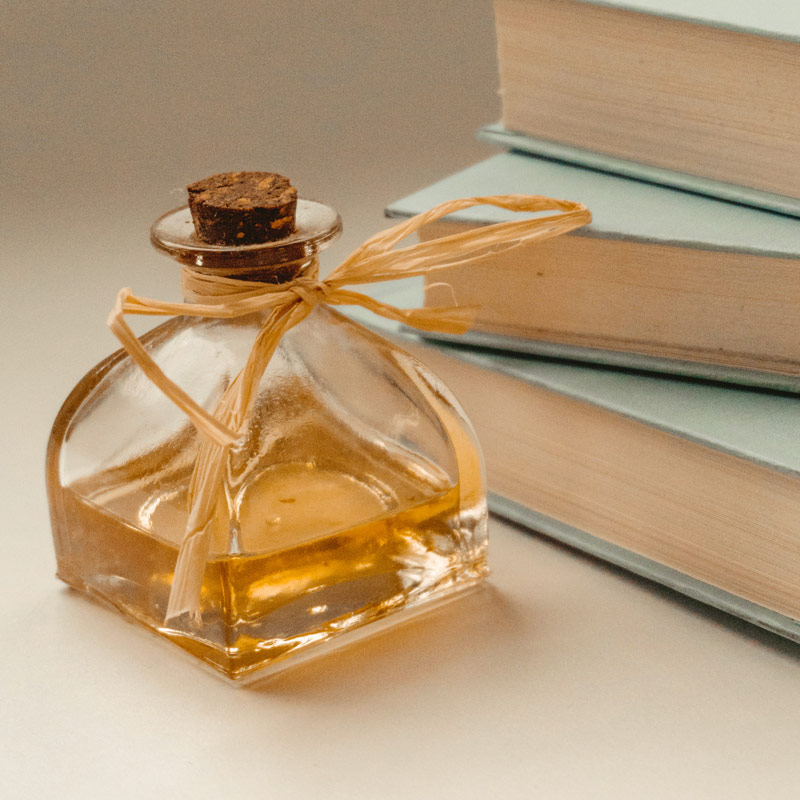
How to make your own Perfume
Making your own perfume at home can be a creative and enjoyable process that allows you to create your own personalised fragrance. Make your own perfect scent, or a range of scents that you can enjoy for many occassions and scenarios. Here is a simple guide that breaks down the processes in creating your own perfume at home.
Ingredients / Things you may require:
| Essential Oils: |
Essential oils will be your scent notes. Choose a combination of base, middle, and top notes. This is expanded upon further down the page. |
| Carrier Oil: |
Carrier oils are used to dilute the essential oils and carry them onto your skin without causing irritation. They are typically odourless or have a very light scent. You don't want your Carrier Oil to overpower your essential oils. Jojoba oil or sweet almond oil are popular choices as Carrier oils as they are odourless and will help preserve the essential oils too. |
| Alcohol: |
High-proof alcohol (like vodka) assists in dissolving and blending your essential oils, whilst also helping preserve the perfume to extend its shelf life. It also helps the perfume to diffuse into the air and on your skin. |
| Distilled Water: |
(optional if dilution is desired) |
| Coffee Filter or Cheesecloth: |
Used for straining if nescessary. |
| Pretty Glass Bottle: |
To preserve the perfume. Clean and sterilize first in the dishwasher. |
Steps to Make Your Perfume:
-
Select Your Scent Notes
- Top Notes: These are the scents that are noticed first and evaporate quickly. Examples include citrus (lemon, orange), light fruits (apple, berry), and herbs (lavender, mint).
- Middle Notes: The "heart" of the perfume, these scents emerge just before the top notes dissipate. Floral (rose, jasmine), spices (cinnamon, nutmeg), and green scents (grass, juniper) are common middle notes.
- Base Notes: These scents last the longest and help to anchor the perfume. Common base notes include woody scents (cedarwood, sandalwood), resins (myrrh, frankincense), and vanilla.
-
Create Your Perfume Base
- Mix about 25-30 drops of essential oils in total (adjust based on how concentrated you want your perfume to be). As a rule of thumb, aim for a balance of 20% top notes, 50% middle notes and 30% base notes.
- Add 2 tablespoons of carrier oil.
- Pour 2 tablespoons of alcohol into the mixture.
- Write down your additions and quantities into a notepad as you go, so you can easily keep track of the amounts you have added.
-
Let It Mature
- Seal the mixture in a dark glass bottle and store it in a cool, dark place for at least 48 hours up to a month. Don't be in a rush. The longer it sits, the more the fragrance will combine and develop.
-
Dilute and Filter
- After maturing, if the scent is too strong, you can dilute it by adding distilled water (optional).
- Use a coffee filter or cheesecloth to strain the mixture into a clean bottle to remove any sediment and clarify the perfume.
-
Bottle Your Perfume
- Transfer the final product into a clean, dark glass bottle. Ideally, use a spray bottle for easy application.
-
Label and Store Your Perfume
- Label your perfume with the date and ingredients used. To store your perfume to make the fragrance last as long as possible, keep it in a cool dry dark location, away from light and heat.
Making your own perfume is often a process of trial and error, so feel free to experiment with different combinations of scents to find what best suits you. Creating a really beautiful perfume is nothing short of an art form, so don't be too hard on yourself if you don't come up with a winning fragrance straight away. It isn't easy, but it can be fun and rewarding to try. Enjoy the process of discovering your own unique personal fragrance! They can make a really thoughtful gift idea too.
